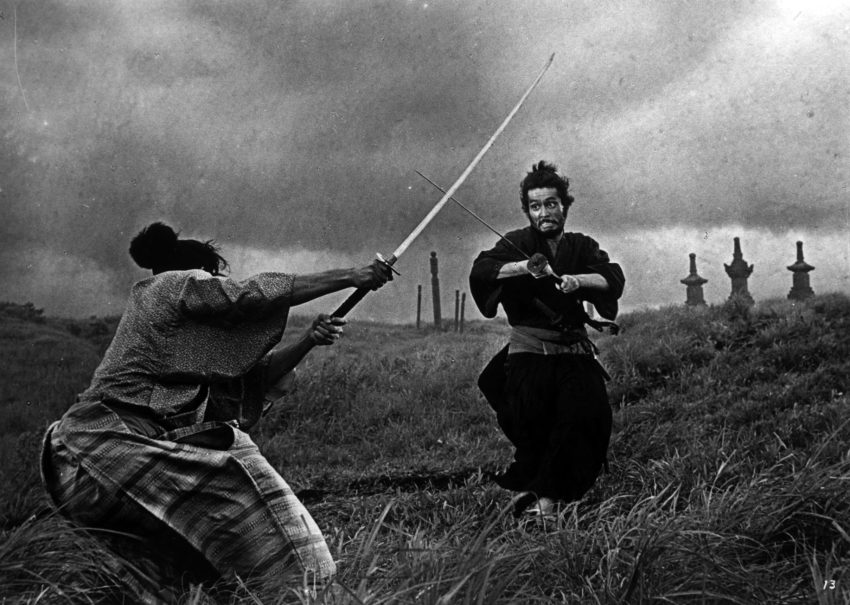Masaki Kobayashi’s “Harakiri” (Seppuku), released in 1962, stands as a towering achievement in Japanese cinema, a searing indictment of feudal hypocrisy and societal decay. This meticulously crafted film, set in 17th-century Japan, follows the poignant journey of Hanshiro Tsugumo, a ronin who arrives at the Ii clan’s estate requesting to perform seppuku (ritual suicide). What unfolds is a gripping narrative that unravels the clan’s dark secrets and exposes the brutal realities of a system that values appearances over human dignity. “Harakiri” transcends its historical setting, resonating with timeless themes of honor, desperation, and the corrosive nature of power.
Quick Summary Box
| Category | Details |
| Movie Name | Harakiri (1962) |
| Director | Masaki Kobayashi |
| Cast | Tatsuya Nakadai, Rentaro Mikuni, Akira Ishihama, Shima Iwashita |
| Genre | Jidaigeki (Japanese Period Drama) |
| IMDb Rating | 8.6/10 ⭐ |
| Duration | 2h 13m |
| Where to Watch | Criterion Channel, Digital rental platforms |
| Release Date | September 16, 1962 |
Plot, Characters, and Performance: A Tragedy of Eroded Honor
Kobayashi masterfully constructs a narrative that unfolds with the precision of a Noh drama. The initial setup, with Hanshiro’s seemingly simple request, belies the complex layers of intrigue and emotional depth that follow. Tatsuya Nakadai’s performance as Hanshiro Tsugumo is nothing short of iconic. He embodies the character’s stoicism and quiet intensity, conveying a profound sense of grief and righteous anger. Nakadai’s ability to express complex emotions through subtle gestures and piercing gazes is a testament to his exceptional talent.
The film’s supporting characters are equally compelling. Rentaro Mikuni, as the Ii clan’s chamberlain, Kageyu Saito, delivers a performance that is both authoritative and chilling. He represents the rigid adherence to tradition and the moral bankruptcy of the feudal system. The interactions between Hanshiro and the Ii clan members are charged with tension, revealing the stark contrast between their hollow adherence to ritual and Hanshiro’s genuine sense of honor.
The film’s flashbacks, which reveal Hanshiro’s past and the tragic circumstances that led to his arrival at the Ii estate, are crucial to understanding his motivations. These sequences, while emotionally devastating, provide crucial context and amplify the film’s critique of social injustice.
Direction, Cinematography, and Sound: A Visual Symphony of Despair
Masaki Kobayashi’s direction is masterful, characterized by his meticulous attention to detail and his ability to create a visually stunning and emotionally resonant film. The film’s pacing is deliberate, allowing the narrative to unfold with a sense of inevitability.
Yoshio Miyajima’s cinematography is breathtaking. The use of stark black-and-white photography enhances the film’s somber tone and emphasizes the stark contrast between light and shadow, symbolizing the moral ambiguities of the characters and their actions. The framing and composition of each shot are carefully considered, creating a sense of claustrophobia and highlighting the characters’ isolation.
Toru Takemitsu’s haunting score is a crucial element of the film’s emotional impact. The minimalist, atonal music underscores the film’s themes of despair and tragedy, creating a sense of unease and foreboding. The sound design, with its emphasis on silence and subtle ambient sounds, adds to the film’s atmosphere of tension and dread.
Themes and Messages: A Critique of Feudal Hypocrisy
“Harakiri” is a powerful critique of the feudal system and its rigid adherence to tradition at the expense of human dignity. The film explores themes of honor, justice, and the corrosive nature of power. Hanshiro’s quest for justice exposes the hypocrisy of the Ii clan, who prioritize their reputation over the lives of their retainers.
The film also delves into the theme of desperation, depicting the plight of ronin who were forced into poverty and destitution by the collapse of the samurai class. Hanshiro’s tragic story serves as a poignant reminder of the human cost of social injustice.
Strengths and Weaknesses: A Masterpiece of Restrained Power
“Harakiri” is a masterpiece of restrained power. Its strengths lie in its masterful direction, compelling performances, and thought-provoking themes. The film’s ability to convey complex emotions and ideas through visual storytelling is remarkable.
However, some viewers may find the film’s deliberate pacing and minimalist dialogue to be a weakness. The film’s unflinching portrayal of violence, while essential to its narrative, may also be disturbing to some.
Comparison to Other Masaki Kobayashi Films
Masaki Kobayashi is known for his socially conscious films that critique injustice and explore complex moral dilemmas. While comparisons to Denis Villeneuve are interesting, Kobayashi’s focus is on social commentary, while Villeneuve is more known for large scale science fiction. Kobayashi’s “The Human Condition” trilogy also displays his mastery of long form storytelling and his commitment to tackling difficult subjects. Both directors are known for their visual mastery, however, Kobayashi’s films are often more grounded in social realism.
Conclusion: A Timeless Masterpiece
“Harakiri” is a timeless masterpiece that transcends its historical setting. It is a film that demands to be seen and discussed, its themes of honor, justice, and social injustice resonating with contemporary audiences. Masaki Kobayashi’s masterful direction, combined with Tatsuya Nakadai’s unforgettable performance, creates a cinematic experience that is both powerful and profound. Highly recommended.
Rating: 5/5 Stars ⭐⭐⭐⭐⭐
If You Enjoyed “Harakiri Review,” You Might Also Like:
- Seven Samurai (1954) Review
- Rashomon (1950) Review
- Yojimbo (1961) Review
